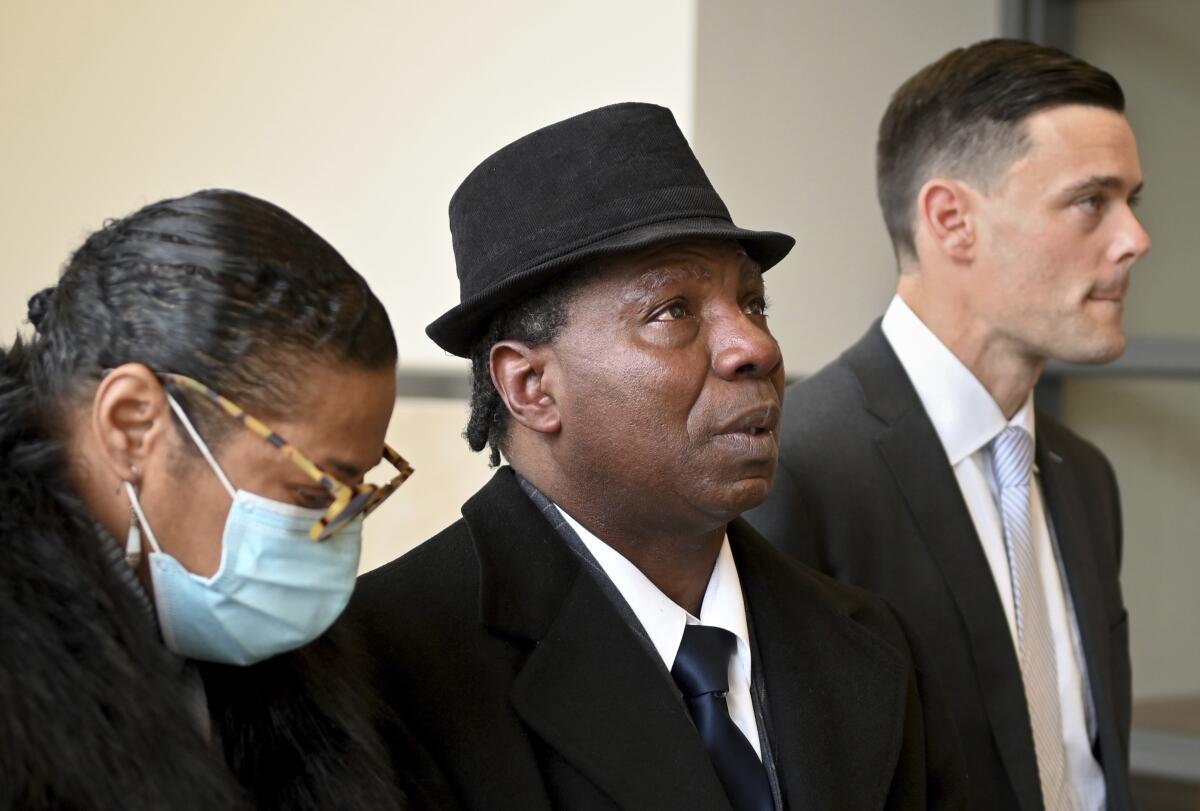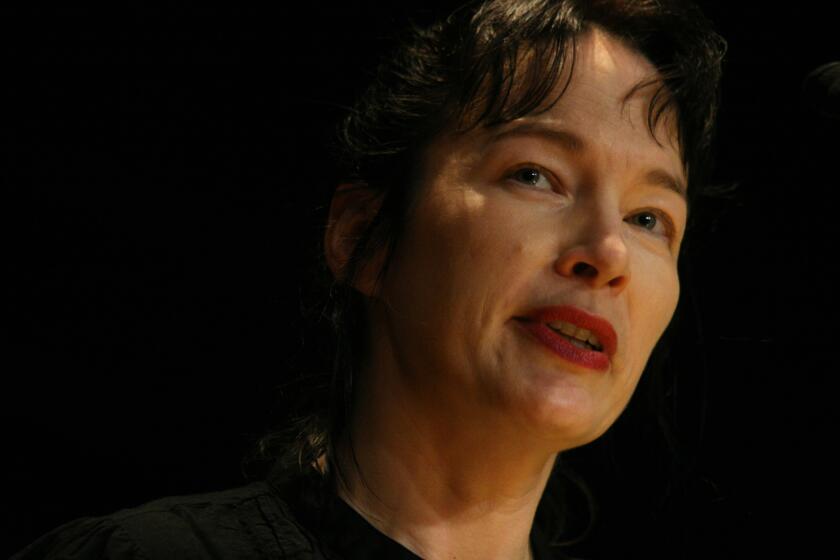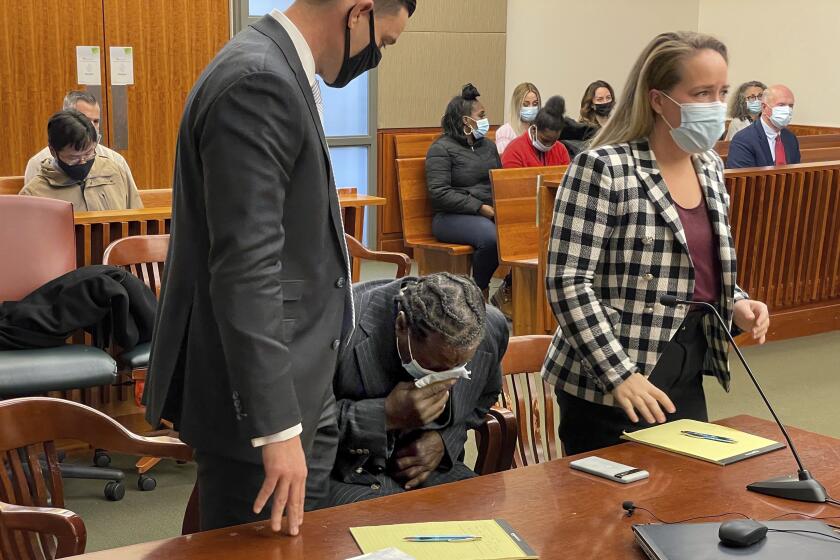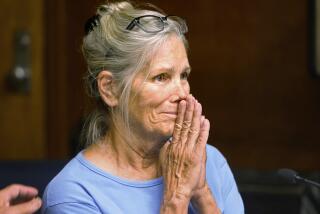Op-Ed: My work on Alice Sebold’s ‘Lucky’ helped get a wrongful rape conviction overturned

- Share via
Last week the 1982 rape conviction of Anthony J. Broadwater was overturned. Broadwater spent more than 16 years in a New York state prison after being convicted of raping Alice Sebold, the bestselling author of “The Lovely Bones” and “Lucky,” a memoir that chronicles the rape and its aftermath. He has been on the sex offender registry ever since. He has always proclaimed his innocence.
When I originally signed on as an executive producer of the film adaptation of “Lucky,” I could not have imagined that I would end up friends with Broadwater, let alone help to get his record cleared. At the time I didn’t know his name; I was told Sebold’s assailant was Gregory Madison, though that name was actually the pseudonym used for Broadwater in her book.
When I first read “Lucky,” I was deeply distressed by the horrific attack Sebold endured as a freshman in college. She deserves all of our empathy and sympathy.
Sebold apologized to Anthony Broadwater, convicted of her rape in 1982 and exonerated last week. Her publisher announced a pause to consider revisions.
But after I became involved in the production of the film based on “Lucky,” I reread the book with a more critical eye. I began to sense that the portions of the book that dealt with the arrest and subsequent trial of her attacker were not credible. For example, in the book when Sebold identifies the wrong man in the police lineup, she wrote that an assistant district attorney tells her that the men in the lineup “really worked a number on you.” That remark didn’t ring true to me. I discussed my concerns with some of the production team and was assured that Scribner, the publisher of the book, had thoroughly vetted and fact-checked it before its publication.
After I first received a copy of the film’s shooting script in March, it was suggested that the race of the assailant be changed from a Black man to a white one. I was told that a Black actor consulted on the role said that he was afraid having a Black man as the rapist of a white woman in the film could contribute to the actual violence of white people against Black men in our country, perhaps even leading to a Black man being killed. Though making significant changes between source material and a script is common practice in film adaptations, even those based on true stories, this change and others kept my unease with aspects of the book fresh in mind.
I continued to bring up inconsistencies from the source material to the production team, even suggesting we bring in another director. But I was told that based on another producer’s years of dealing with Sebold, he felt she would agree with their assessment of the changes in the script and would want to keep the director on.
Sebold apologized to the man exonerated in her 1981 rape, saying there was no debate over judicial injustice back then. A contemporary begs to differ.
This was the beginning of the end of my association with the production. On June 7 I received a notice of termination from producer James Brown, primarily for not providing the film with funding I initially had agreed to. I had hesitated to pay, despite my contract, after my doubts began.
Initially, my break with production felt like a relief. But the whole experience continued to bother me and I began to seek answers. While I’m not 100% certain why I felt I had to dig, I’m sure it was a combination of the questions that remained and the frustration with how my role on the film had ended.
In early July I hired Dan Myers, a private investigator in Syracuse, to look into the case, beginning with identifying the real name of the man convicted of raping Sebold. Myers’ uncovered the name Anthony Broadwater, and his investigation, and the work of the attorneys he is associated with, ultimately resulted in the overturning of Broadwater’s conviction.
A rape conviction at the center of a memoir by author Alice Sebold is overturned because of what authorities found were serious flaws with the prosecution.
Broadwater’s unfair conviction is yet another example of the racism our justice system perpetuates on people of color, especially Black people. The “Lucky” production, now canceled, was another way this kind of racism is monetized.
Broadwater is a man who served his country as a Marine, a man who was forced to support himself and his family by doing odd jobs after his release from prison. But despite everything he has endured, he is a man who has accepted Sebold’s apology, and one who refused to give up hope on his decades-long fight to prove his innocence. I am humbled to now call him my friend.
Timothy Mucciante is president of Medici Media and Red Badge Films, which is now producing a documentary about the Anthony Broadwater case called “Unlucky.”
More to Read
A cure for the common opinion
Get thought-provoking perspectives with our weekly newsletter.
You may occasionally receive promotional content from the Los Angeles Times.












